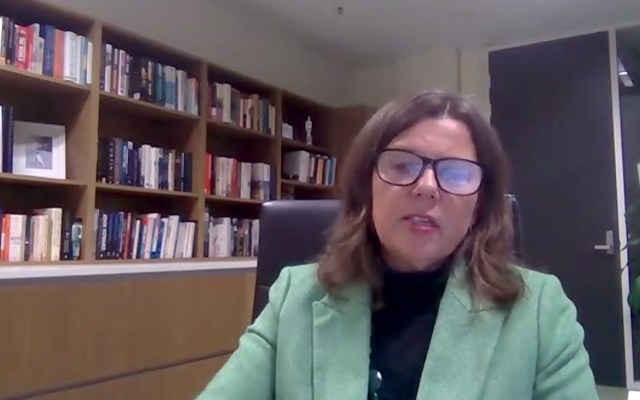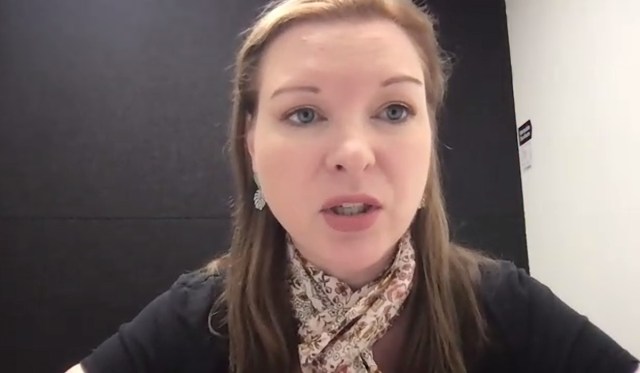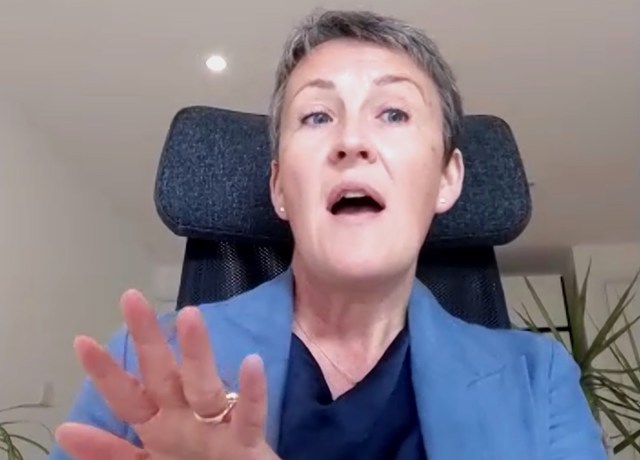
By David Fox
Social media has built an important place in news, both as a way of finding new stories and reaching new audiences, and also as a gatekeeper that has interjected itself between the newsroom and its audience and is now competing with news organizations for both eyeballs and revenues.
The inevitable clash between content providers and the big digital platforms, particularly Google and Facebook, has risen to the courts in some countries, and to the legislatures in others, most notably in Australia, where legislation has been passed, although not yet enacted — even though it has already had a big enough impact that news organizations around the world are watching with interest.
At a recent Westminster Media Forum policy conference on The Future Of News, Creina Chapman, Deputy Chair and CEO, Australian Communications and Media Authority, told delegates: “Nearly a quarter of Australians are now using social media as their primary source of accessing news.”
Indeed, a 2019 study by Australia’s Consumer and Competition Commission found that while local and regional news is declining and many traditional media companies struggle, Facebook and Google now enjoy substantial market power, taking nearly two-thirds of the online revenue in Australia.
As a result, its government devised a new news media bargaining code designed to address the imbalance between Australian news media publishers and Google and Facebook (it was only intended to be those two platforms), in order to get them to remunerate publishers for using their content.
“The strength of this legislation is about the threat. “It’s about driving the parties to the table to negotiate.”
— Creina Chapman
The legislation obliges Facebook and Google to participate in the code, but can also place more obligations on the platforms if they are designated by the government, such as: minimum standards, including having to reveal significant algorithm changes; anti-discrimination clauses, “which were particularly contentious,” said Chapman; and mandatory bargaining relating to both payment and non-payment systems, which can move into compulsory mediation and then arbitration.
In response, Facebook initiated a ban on news on its platform that lasted eight days, preventing users accessing or sharing news. “There was an immediate massive drop in relation to directions made to news media websites, which strengthened Facebook and Google’s argument about how important they were, estimates at the time showed that [traffic] dropped by about 13 or 16%,” but it didn’t cause any long-term harm, she explained.
However, Chapman, who has previously worked in TV, radio and for News Corporation. made clear that the legislation is not yet in effect, as no digital platform has been designated by the government, which would prefer not to as it wants them to negotiate, which they have done.
“The strength of this legislation is about the threat,” she said. “It’s about driving the parties to the table to negotiate,” with “a considerable number of agreements entered into” — reportedly amounting to about 500 million Australian dollars ($368 million), all focused around Google Showcase and the Facebook News tab (a product that is yet to be launched in Australia), and she would like to see negotiations go beyond those products.

“If you want action, I think the threat of regulation is inevitable; I don’t think there is any way around that,” she said. While Australia concentrated on competition, other countries, such as France, focused on copyright, and the G7 has been talking about taxation.
“In our scenario, this is really about money moving, but it does not address the non-remunerative issues, like algorithms.” The Australian legislation has to be reviewed after a year, and she wondered about “how much of this is a sugar hit for publishers and how much is sustainable? But, I think Australia proves that you’ve got to start somewhere and it’s been a good start.”
However, not all news media have been equally successful in negotiations. “It’s hard to see yet how regional broadcasters have gained from it,” she said. “I haven’t heard of any deals being done with them, but what is interesting is that when the legislation was put together there’s a specific clause that was put in it to enable collective bargaining by those who chose to do it,” and the Country Press Association, which represents most regional newspapers, did enter negotiations, which resulted in Google and Facebook launching innovation funds to help those papers.
“I think they’ve [the platforms] been really cynical. Google and Facebook appear to want to do anything to avoid the legislation kicking in,” she said. “Because they don’t know what it will do. But, the main reason is they just do not want it as a precedent for the rest of the world.”
London School of Economics Professor Charlie Beckett, said: “It’s not good enough to expect the tech companies to divvy out some one-off payments. That’s not a solution. There needs to be a force.
“We need the technology companies to exercise greater responsibility around information, and that may include some forms of regulation, but they’re not going to go away and they are in many ways, in fact, much more popular and more useful to the public than news organizations. So, journalism has to show that it has value, something which I think it did during the during the pandemic, and think about ways that the technology companies might actually facilitate and support journalism itself.”
Can We Be Friends?
In response, the big digital platforms insisted they are playing nicely with the older news media.
“Different countries have different models, have different issues, different challenges, and different opportunities,” said Facebook’s Head of News Partnerships Northern Europe, Sarah Brown. “What we say in any of these environments is that there should be a fair assessment of the value that we bring to the table in addition to the publishers.

“In Australia, we felt that initially that was not the case and I’m pleased to say that we have since then worked very hard with both regulators and with publishers in that country to ensure that there is a kind of a fairer assessment in terms of what works there, and I think that’s the way forward.” However, this might not translate well to another country and it has to be done with a fair assessment of both what works and that country’s specific needs, she said.
In fact, Brown believes that regulation can be in Facebook’s interest. “We have called for regulation, in many ways, because we are operating in these spaces that are on the frontiers of a lot of very interesting, very frankly challenging conversations,” from fake news to cancel culture.
“We’ve hired 15,000 moderators in the past few years to deal with the challenges that we face, and I think it’s important to note that we don’t do that in a vacuum. Obviously, we have our community standards. We have roles and positions in place. We also have a new oversight board that tasks us with making sure that we’re overhauling some of our practices and procedures because they felt that they were not robust enough and we took that on board.”
Google’s aim in news “is to provide users with the most relevant and authoritative information available, so we share a common goal, a common cause with the news publishers, which is supporting quality journalism to help create a more informed world,” stated its Head of News Partnership Solutions – UK, Benedicte Autret.
“Important to note also that news does actually only incorporate around 4% of News Feed in total. So while it’s an incredibly important surface for news, and we recognize the importance of news, it’s not actually a massive part of our entire ecosystem.”
— Sarah Brown
It has various ways for users to discover news, each providing different opportunities for engagement and/or monetization: Google News; Google search; Google Discover (on Android); YouTube; and Google Assistant. Autret insisted: “We help publishers reach huge audiences.” In Europe alone people click on the news content Google links to more than 8 billion times a month, while a Deloitte study shows that in the UK all web referral traffic (not just Google), is worth approximately £600 million ($830 million) a year to publishers.
Google also delivers significant advertising revenue to publishers. “On average, the largest news publishers in the UK, overall, keep over 95% of the digital advertising revenue that they generate when they use the Google ad manager technology to show ads on their website,” she claimed. Between 2018-2020 it paid more than £300 million ($415 million) to the top five news publishers using its services.

It is also licensing content from news publishers. “In the next three years, we’ve announced that we’ll pay more than $1 billion to publishers creating and curating high quality content for News Showcase.”
It has also created subscription tools that help publishers gain new revenue from online visits such as ‘subscribe with Google’, which simplifies digital subscriptions management and includes frictionless payment. It also supports publishers’ digital transformations, including a digital growth training program, a dedicated subscriptions lab delivered by FT Strategies (part of the Financial Times) and change management coaching.
Facebook is also trying to become friends with the industry.
“Publishers choose to post their content on our platform,” they choose the formats, the timing and the audience they wish to target, said Brown. Facebook doesn’t charge for that and when a user clicks on a link, the publisher can make sure that it is rendered directly to their website and generates referral traffic for them, which they can monetize directly.
“Or they can use our instant article product in which it’s rendered and there is a revenue share. Either way it is an excellent system for publishers both to monetize their content and also to reach new audiences. Important to note also that news does actually only incorporate around 4% of News Feed in total. So while it’s an incredibly important surface for news, and we recognize the importance of news, it’s not actually a massive part of our entire ecosystem.”
It is also working on subscription products, and its video services, whether live or on demand, can be monetized using in-stream ads, to insert an ad at any point, or to add sponsor branding.
Facebook has also trained thousands of journalists in the UK, on everything from safety to video content to harnessing the power of Facebook groups for newsgathering. Newsrooms can also use the platform to generate video content through Facebook Live, or use Facebook Groups to gather news.
“In the next three years, we’ve announced that we’ll pay more than $1 billion to publishers creating and curating high quality content for News Showcase.”
— Benedicte Autret
It also provides financial support. “We launched last year the COVID-19 journalism support fund, partnering with the European Journalism Centre. This was based very much on feedback from local and regional partners across Europe who were struggling frankly and so we supported and set up a $3 million fund for publishers to apply for emergency grants and also innovation grants and the response we got in terms of applications, but also in terms of impact, was remarkable to see.”
There is also a Community News Project, a $9 million program that has put more than 80 journalists into newsrooms across the UK. It encourages innovation and diversity within newsrooms, with 68% of those recruited coming from diverse backgrounds.
Brown maintains that Facebook News (which launched at the end of January in the UK and several other markets) “is great for surfacing content from publishers you may not previously have had a connection to. We found in the US, for example, that any traffic that US publishers were getting was in addition to the existing traffic they’re already getting from News Feed, which was showing that they were getting clicks and eyeballs on content from people who were not necessarily connected by their page or connected via other ways.”
She insisted that Facebook also encourages good journalism. “We do have guardrails around Facebook News that are stricter in many ways than the News Feed to ensure that it is a quality and informed news experience for users.”
Could They do More?
One challenge for Autret is “how we operate at scale,” because sometimes it’s not the most effective way to work with smaller organizations, although it is trying to work with media industry associations. Brown added that one of the consequences of the pandemic has been to make it difficult to “go into newsrooms to talk to people” or go to conferences and conventions to meet people. “Being able to listen to those conversations and understand more about what you need, what’s important to you.”
Over the past 18 months one problem she has observed is the news industry’s difficulty in keeping younger audiences engaged with news and she believes there’s an opportunity for the industry to work with Facebook on this.




